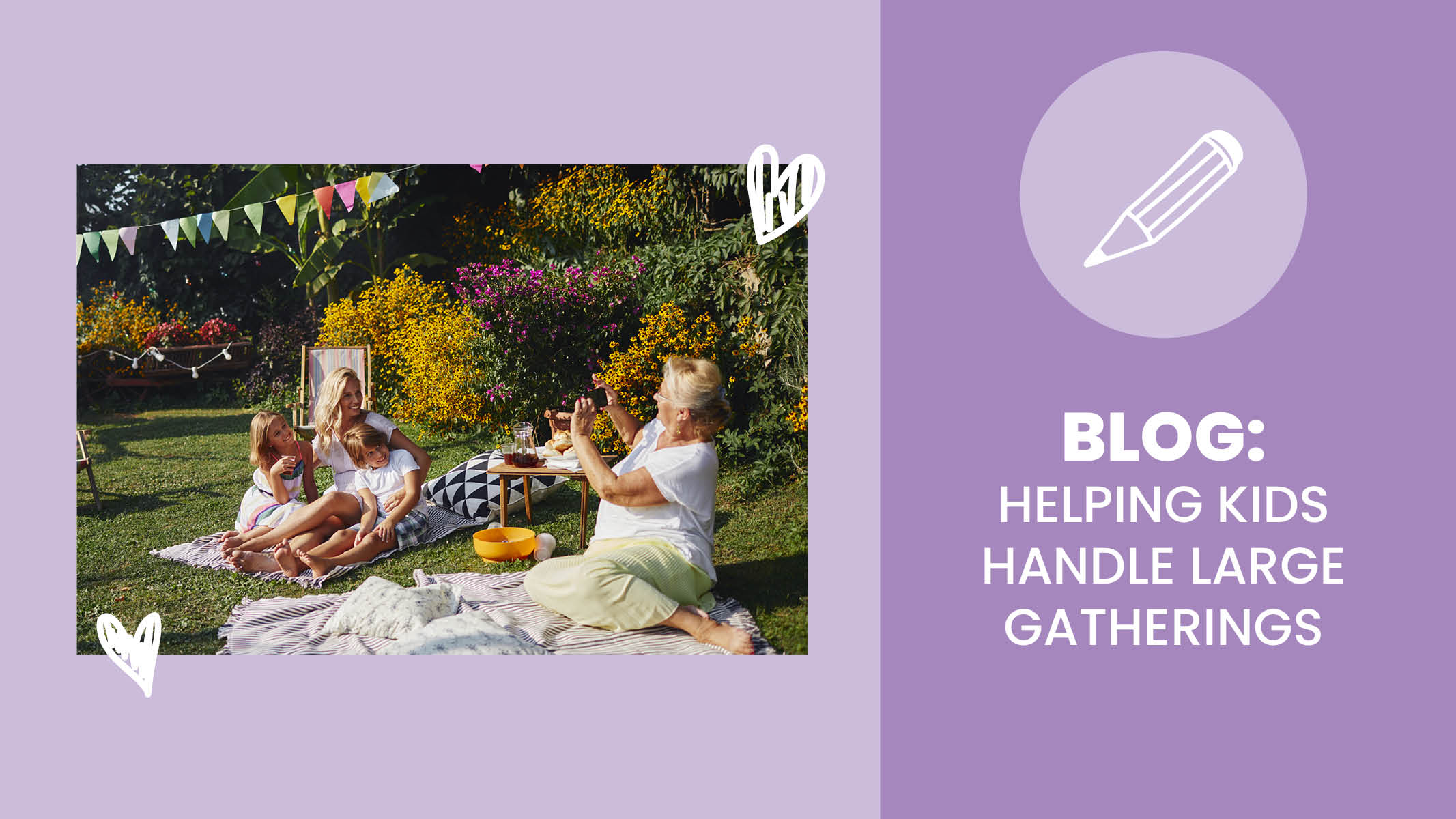Large gatherings can be stressful for anyone. The added stimulation, hours of preparation, and heightened expectations are just a few simple reasons adults may feel stressed in a large gathering environment. But what about kids? What could they be stressed about during a large gathering? Here are a few potential causes of stressed and overwhelmed feelings in children during large gatherings:
- Heightened stimulation: In any large gathering, increased stimulation is inevitable. With more people, loud noises, and more activity going on around them, a child can easily feel overwhelmed.
- Different environment: Being in a less familiar location may not be as comfortable for your child which can lead to stress. Alternatively, if your family is the host, your child may be overwhelmed by different people in their space and the expectation to share toys or other household items.
- Different foods: Exposure to new foods, particularly in a new environment can be overwhelming especially coupled with expectations of their manners. Your child may be less eager to try a new food or worry about not having enough to eat if they do not like the options on the menu. If you have a picky eater, click here for tips on how to make food interesting for your child.
- Uncomfortable clothing: Any large gathering or holiday get-together may sound like the perfect time to break out the fancier clothing, but even small annoyances like an itchier fabric, tags, or limited range of motion can make a child less comfortable.
- Parental stress: Your child can sense what you’re feeling. If you’re stressed, they might feel it too!
Now that you’ve considered some of the things that can make a child stressed during a large gathering, how can you help them positively cope with their feelings? We sat down with our Certified Child Life Specialist, Brittney Nathan, to learn all the best tips.
How can families prepare their children for large gatherings?
“Age-appropriate preparation is key!” According to Nathan, “If you’re wondering what information is important to share, focus on what the child will experience in a chronological and sensory manner. For example, how you will travel to the event, what will happen when you arrive, what the environment will look like, what the environment will sound like, etc. Most importantly, reassure your child that they can come to you at any time if they’re feeling overwhelmed. If you’re concerned about your child voicing their need for assistance in a group setting, empower them to use a special code word or phrase! Both caregivers and kids can use this to privately gauge the need for connection.”
What are some signs that your child is overwhelmed or stressed about a gathering?
Nathan encourages caregivers to, “Pay extra attention to your child’s emotional state when discussing this gathering. Is their mood changing or do they seem to withdraw from the conversation completely? Physical symptoms like headaches or an upset stomach are common signs of stress as well.”
What are some coping strategies parents can use to help their child cope with the stresses of large gatherings?
According to Nathan, there are several effective coping strategies, so you and your kids can feel empowered to choose what works best.
- Connect through conversation: As previously discussed, open and honest dialogue is key. Engage in conversation before the event, and ensure your child feels comfortable sharing their worries or concerns with you.
- Check-in and comfort: Occasionally check in with your child throughout the event to ensure they’re feeling comfortable. Complete this check-in with a simple hug or words of encouragement.
- Breathe it out: Practice deep breathing with your child and encourage them to utilize this skill when they need to calm their body and brain. Check out some of our favorite breathing techniques here.
- Speak kindly to yourself: Recite positive affirmations together, then pick a couple of phrases your child can say to themselves when in need. Some of our favorites are, “I can do hard things,” “I believe in myself,” and “Everything will be okay.” For more ideas on using positive self-talk to motivate your kids’ mood, check out this article.
Ready for More? You Might Also Like:
Chit Chat Cards: Cards Created for Connection
Cheat Sheet for Caregivers: Coping with BIG Feelings and Anxiety
Recognizing Feelings and Emotions


